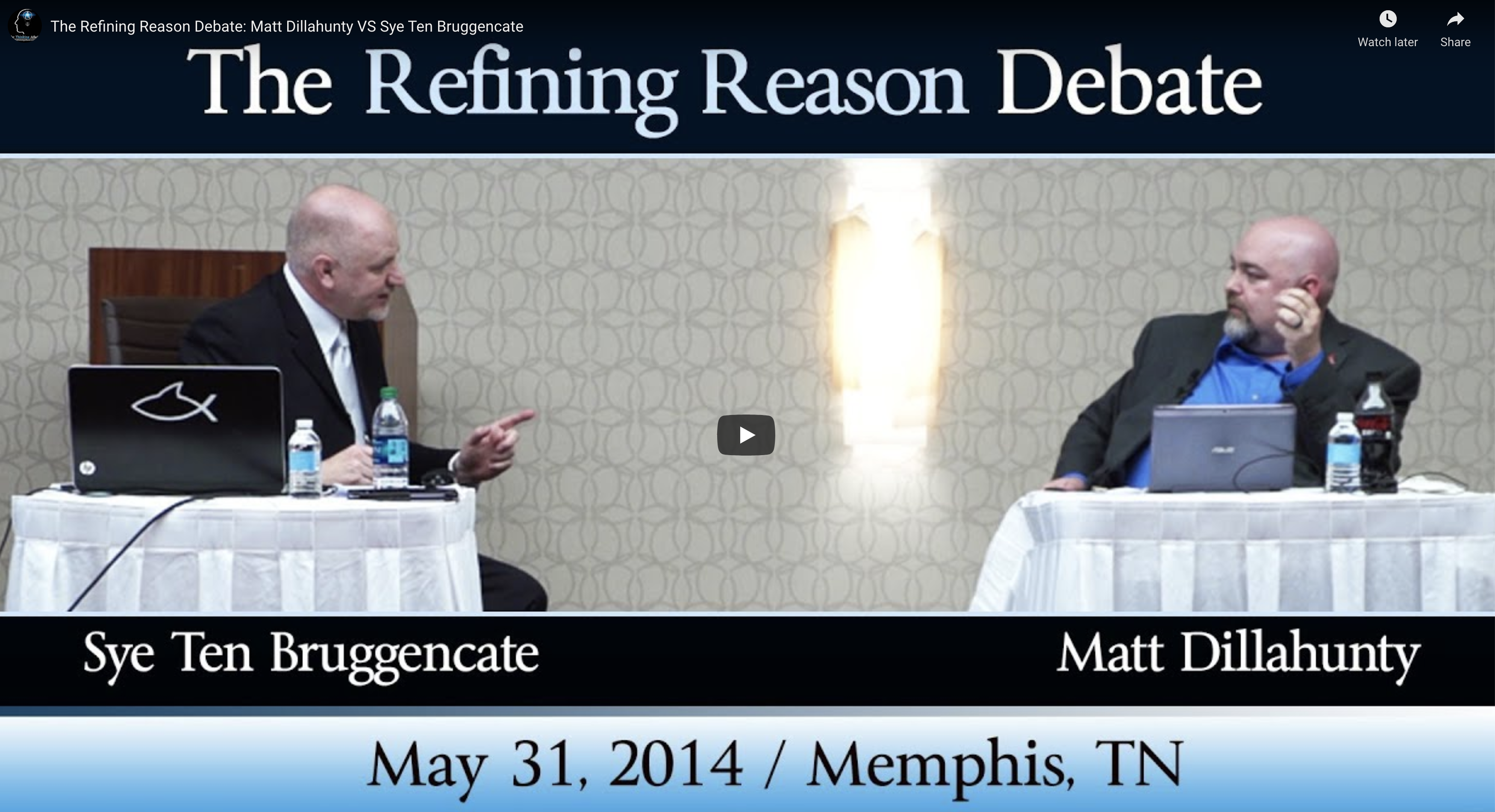
Gravitational Attraction
What would happen if two people out in space a few meters apart, abandoned by their spacecraft, decided to wait until gravity pulled them together? My initial thought was that …
In #articles

In the frustrating debate between Matt Dillahunty and Sye Ten Bruggencate, linked below, an "argument" is put forward that belief in God is reasonable. If you are unfamiliar with presuppositional apologetics, it doesn't use evidence at all and can be a frustrating process. Have a look at what stands in for a proof of God from the Sye's website. A nice summary, and some tactics to use against presuppositionalists, can be found at the Reasonable Doubts Podcast.
In this post I want to summarize the initial "argument" put forward by Sye:
After presenting this "argument", he claims that he doubts that Matt will challenge the first premise, and he was correct. I, however, challenge the first premise - it is not always reasonable to believe in true things. For something to be reasonable, it must mean that you have followed the proper procedures of inductive reasoning, or in other words, are applying probability theory properly. This means that the confidence in a claim must scale with the available evidence.
For it to be reasonable to believe in something, it must rise to a level of probability that you would label it as "belief". Does this ever happen, or should this ever happen, with untrue things? Certainly. Here are a few that come to mind.
In each of these cases there is in fact strong evidence for the claims, and against the counter claims, to make it reasonable to believe them (at the time). It no longer is reasonable - the process of reason forces one to re-weight the probabilities of the hypotheses given new evidence, and to discard those hypotheses that become too improbable.
I'd like to see Sye to define reason. Even if we assume his God is real, the process of God-given reason needs to be consistent with what we already establish for inductive reason. There is no spot in it for special pleading, so it would undermine the thing he is claiming. For example, proper reasoning concludes that special revelation is not reliable, and thus cannot be used as strong evidence for adjusting probabilities. If Sye is making the claim that even using logic presupposes God, he needs to define reason in such a way that it doesn't turn back on his presupposition.
Of course, he won't, because all presuppositionalist arguments are circular.